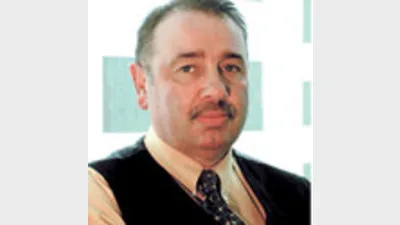Superannuation bungle reveals Gillard’s hand



Prime Minister Julia Gillard recently revealed the degree to which the Government viewed the Industry Super Network as not only a close political ally but also a key source of financial services policy direction.
While Australian Prime Ministers almost inevitably incur substantial political debts as they navigate their way to the top, most of them understand the need to leave all public vestiges of those debts at the door of the Lodge.
There are good reasons for this because, in the end, a Prime Minister knows that she/he has to govern for all of Australia, not just for those who voted for the party or who provided political and financial support for their campaigns. In short, Prime Ministers need to be, well, Prime Ministerial.
The Prime Minister, Julia Gillard last week appeared to forget this when she addressed an Industry Super Network (ISN) luncheon at the Melbourne Convention Centre and proceeded to take joint ownership with the ISN of some of the most controversial elements of the Future of Financial Advice (FOFA) changes, including ‘opt-in’.
In a few brief paragraphs, the Prime Minister revealed the degree to which the Government viewed the ISN as not only a close political ally but also a key source of policy direction.
To quote the Prime Minister’s address: "You stood with us to get rid of conflicts of interest and the excessive fees. You stood with us to secure the iconic ‘opt-in’ policy to bring fairness to financial advice. You stood with us to bring simple, low-fee super accounts to every worker who needs one. You stood with us to distribute super tax concessions more fairly so that all Australians benefit. You play a role in broader policy debates, on occasion at the vanguard of public policy debates.
"Through ISN, you’re working with us now on issues from the upcoming tax forum, to banking competition policy and nation-building infrastructure."
Given the torrid months the Prime Minister has experienced in dealing with matters ranging from offshore illegal immigrant processing and the carbon tax through to problem gambling, there seems little doubt she felt she was among "friends" and "comrades" at the ISN luncheon in Melbourne. But it was also clear she regarded her Government as having a common agenda with the industry superannuation funds.
In the context of the ongoing discussions and consultations around the FOFA changes and Stronger Super, the Prime Minister’s speech must therefore be viewed as a watershed in terms of defining her Government’s ongoing relationship with the financial services industry.
Quite simply, those critics of the Government who have suggested it is doing the bidding of the trade union movement and the industry superannuation funds will regard their arguments as having been proved. Those who have argued the contrary will find it difficult to sustain their case.
Recommended for you
In this episode of Relative Return Insider, host Keith Ford and AMP deputy chief economist Diana Mousina break down the spike in inflation numbers and what it means for the possibility of a rate cut as we move into the new year.
In this episode of Relative Return Insider, host Keith Ford and AMP economist My Bui explore Prime Minister Anthony Albanese’s trip to the US and the critical minerals deal stemming from his meeting with President Donald Trump.
In this episode of Relative Return Insider, host Keith Ford and AMP chief economist Shane Oliver unpack the latest unemployment numbers and what they mean for a rate cut, as well as how the latest flare-up in the ongoing US–China trade dispute has highlighted the remaining disparity between gold and bitcoin.
In this episode of Relative Return Insider, host Keith Ford and AMP chief economist Shane Oliver take a look at the unfolding impacts and potential economic ramifications of the US government shutdown and the surge in gold and bitcoin prices.







